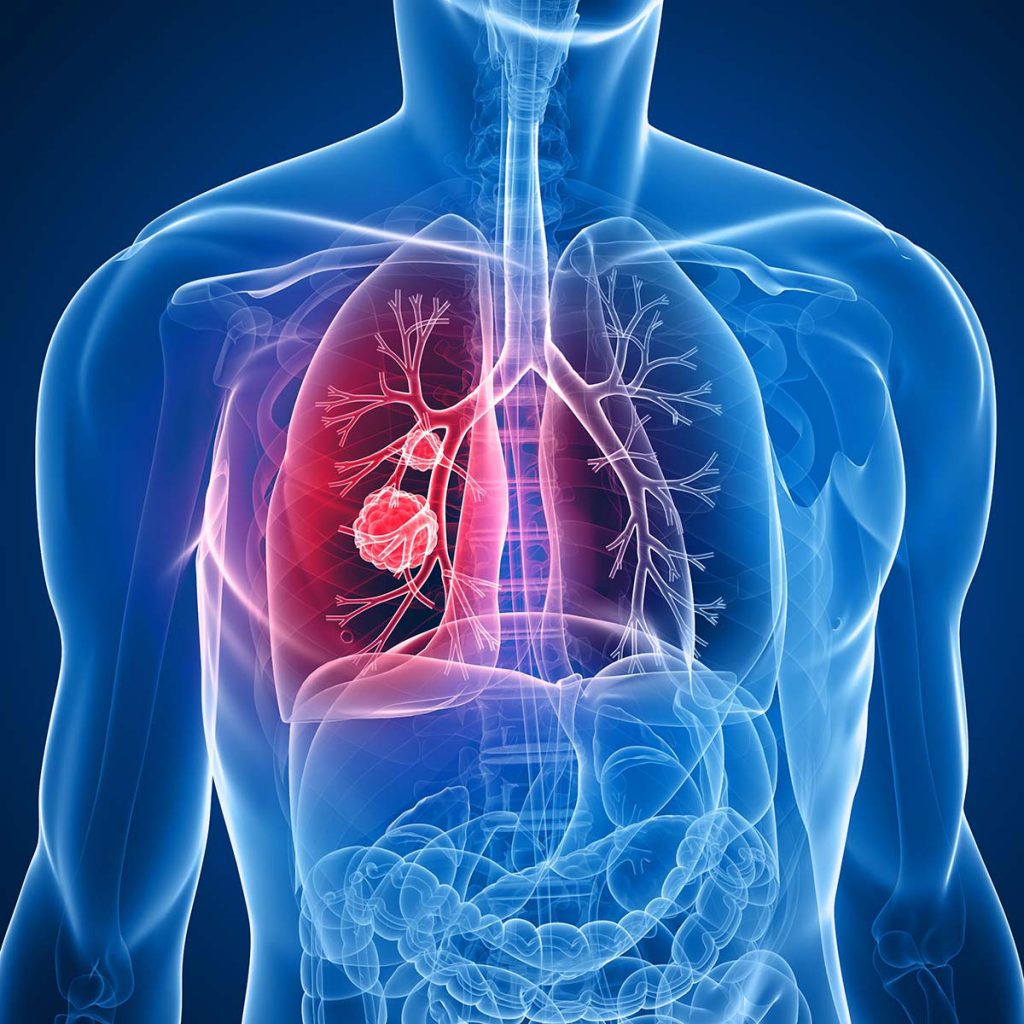
Lung cancer


Overview
The lungs are made of a spongy material and responsible on how the body breathes to inhale oxygen and exhale carbon dioxide. The type of cancer that originates from the lungs is called lung cancer which is the common cause of cancer deaths in the world. Furthermore, the main risk factor of lung cancer is smoking.
Symptoms
Lung cancer typically develops over many years. Early stages of lung cancer are usually asymptomatic until the disease has progressed to the advanced stage, and it may manifest the following signs and symptoms:
- Persistent cough
- Coughing up blood
- Shortness of breath
- Voice hoarseness
- Chest pain
- Wheezing
- Recurrent respiratory tract infection
- Exhaustion or fatigue
- Unexplained weight loss
- Headache
- Bone pain
If the symptoms persist, consult your doctor.
If you have difficulties in quitting smoking, ask your doctor on how to proceed by undergoing counseling, medication and products that can help replace nicotine.
Causes
Exposure to carcinogen can induce DNA mutation in the lung which causes uncontrolled duplication, resulting in forming a mass known as lung cancer.
The most significant risk factor of lung cancer is cigarette smoking for both the main smoker and the secondhand smoker. However, the cause of lung cancer in people who never smoked is still unknown.
Cigarette smoke contains many chemicals that are known to cause cancer (carcinogens) that destroys the cell linings of the lungs. The body can initially fix the lung damage by itself but as the lung is repeatedly exposed to smoke, it damages the normal cells leading to cancer.
The other risk factors are family history of lung cancer, occupational exposure and air pullution.
Types of lung cancer
When cancerous cells are examined under a microscope, there are two major types of lung cancers based on their appearance.
- Small cell lung cancer. Most commonly found in heavy smokers but they are rarely found compared to non-small cell lung cancer.
- Non-small cell lung cancer. Any types of lung cancer other than small cell lung cancer. The main subtypes of non-small cell lung cancer include squamous cell carcinoma, adenocarcinoma and large cell carcinoma.
Risk factors
These are the risk factors that may lead to lung cancer:
- Smoking. The risk of lung cancer increased with the number of cigarettes smoked per day and the numbers of years of smoking. Smoking is a preventable cause of cancer. Quitting smoking is beneficial at any age.
- Exposure to secondhand smoke. Secondhand smoking also have significant risk of developing lung cancer base on the level of exposure.
- History of radiation therapy. Radiation therapy focused on the chest and for previous cancer treatment increase the chance if having lung cancer.
- Exposure to radon gas. Radon can be inhaled in the air. It is a result of disintegration of a chemical called uranium in rock, soil and water which may be found in construction.
- Exposure to asbestos and other carcinogens. Asbestos and other cancer-causing materials such as arsenic, nickel and chromium can be acquired in a workplace.
- Family history of lung cancer. Having a family member such as your parents, siblings or children with lung cancer.
Contact Information
service@vejthani.com






















